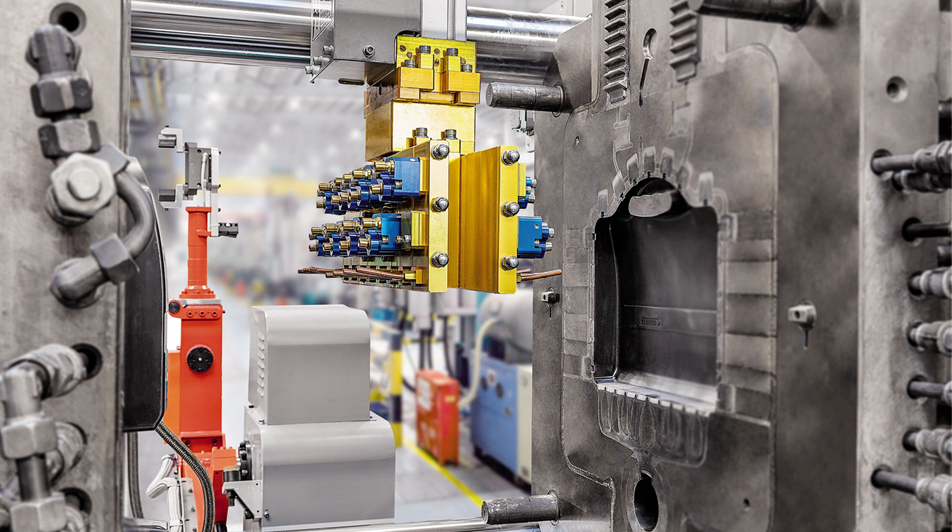Introduction:
Machined casting is a sophisticated manufacturing process that combines the benefits of casting and machining to produce high-quality, intricate parts. This article aims to explore the techniques and applications of mastering the art of machined casting.
1. Understanding Machined Casting:
Machined casting involves the creation of complex parts by pouring molten metal or other materials into a mold and then machining it to achieve the desired shape and dimensions. It combines the advantages of casting, such as cost-effectiveness and the ability to produce intricate geometries, with the precision and accuracy of machining.
2. Machined Casting Techniques:
a) Pattern and Mold Making: The process begins with the creation of a pattern, typically made of wood, plastic, or metal, which serves as a replica of the desired part. The pattern is used to create a mold by packing sand or other materials around it. The mold is then prepared for casting by adding gating and riser systems.
b) Melting and Pouring: The chosen material, usually a metal alloy, is melted in a furnace and poured into the prepared mold. It fills the cavities and takes the shape of the pattern. The cooling and solidification process forms the desired part.
c) Machining: After the casting has solidified, excess material, known as the casting allowance, is removed through various machining processes. This includes cutting, milling, drilling, and grinding to achieve the desired dimensions, tolerances, and surface finish.
3. Advantages of Machined Casting:
a) Design Flexibility: Machined casting enables the production of complex parts that would otherwise be difficult or expensive to manufacture using traditional machining techniques. Intricate internal features, undercuts, and thin walls can be achieved.
b) Cost-effectiveness: Compared to fully machined parts, machined casting offers significant cost savings. The use of casting allows for the production of multiple parts simultaneously, reducing material and labor costs.
c) Material Selection: Machined casting accommodates a wide range of materials, including various metals, alloys, and even non-metallic materials like ceramics and composites. This versatility allows for the selection of materials that suit the specific application requirements.
4. Applications of Machined Casting:
a) Aerospace and Defense: Machined casting finds extensive use in the aerospace and defense industries. It enables the production of critical components like turbine blades, engine parts, and structural elements with high precision and strength.
b) Automotive: Machined casting is employed in the manufacturing of engine blocks, transmission housings, and suspension components in the automotive sector. It offers excellent dimensional accuracy and helps achieve weight reduction without compromising structural integrity.
c) Medical and Dental: In the medical field, machined casting is utilized for producing implants, prosthetics, and surgical instruments. The ability to create intricate and customized shapes is essential for meeting individual patient needs.
d) Industrial Machinery: Machined casting plays a vital role in the production of heavy machinery and industrial equipment. It allows for the creation of large, complex parts that withstand heavy loads and provide durability.

Conclusion:
Mastering the art of machined casting requires a deep understanding of the techniques involved and their applications across various industries. By harnessing the benefits of casting and machining, manufacturers can produce intricate, high-quality parts with cost-effectiveness and design flexibility. The versatility and wide range of materials make machined casting an indispensable process in modern manufacturing.
-

- OEM ارتفاع ضغط يموت الصب عجلة سبائك المغنيسيوم للدراجة الإلكترونية
-

- OEM Die casting manufacturer produce magnesium alloy auto dashboard
-

- سبائك المغنيسيوم يموت الصب أجزاء السيارات المصد الأمامي شعاع مضاد للتصادم
-

- سبائك المغنيسيوم thixomolding يموت الصب أجزاء الطائرات بدون طيار
-

- Magnesium alloy thixomolding die-casting UAV parts C
-

- شوكة تعليق خفيفة الوزن ل MTB

 0086-750-5616188
0086-750-5616188 +86 13392089688
+86 13392089688 sales@zhongmei-tech.com
sales@zhongmei-tech.com







